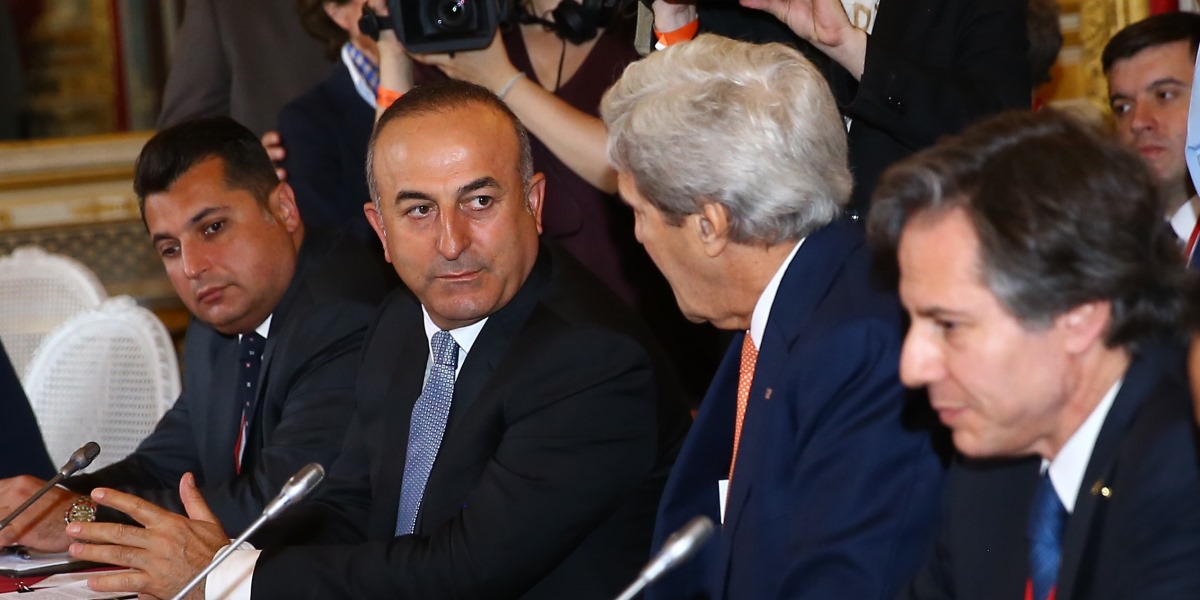Turkish President Recep Tayyip Erdoğan delivered a historic speech at the United Nations General Assembly last week to criticize the U.N. Security Council for failing to represent the international community, while bringing the humanitarian crisis in Syria to the world's attention. Recalling that international organizations and the great powers have failed to address pressing problems, the Turkish leader was the only speaker to openly criticize the world system and talk about humanitarian values. Turkey has launched Operation Euphrates Shield to defeat terrorism in northern Syria and contributed more than $25 billion to humanitarian relief efforts since 2011, Erdoğan said.
The Turkish president's New York trip focused on three issues:
First and foremost, the Turks pitched their plan to transform the area liberated from Daesh in cooperation with the Free Syrian Army (FSA) into a no-fly zone to stakeholders. Although U.S. Secretary of State John Kerry proposed that the Assad regime should be banned from conducting air missions over rebel-held territories, it would appear that Washington would rather offer limited support to Turkey rather than make a serious policy commitment. In order to continue to make progress, the Turkish government will have to persuade decision makers in European capitals including Brussels and Moscow, who do not share Turkey's enthusiasm about the no-fly zone.
At the same time, Turkish officials engaged in technical talks about the upcoming ground offensive against al-Bab, a major Daesh stronghold, as part of Operation Euphrates Shield.
The third and most important item on the Turkish delegation's agenda was the potential involvement of the Democratic Union Party (PYD) and its armed wing People's Protection Units (YPG), the PKK's Syrian franchise, in the coalition effort to liberate Raqqa. Meeting U.S. Vice President Joe Biden in New York, Erdoğan made it clear that Turkey would not participate in the operation if YPG forces were included. Meanwhile, the Obama administration continues to rely on the group even though Turkey committed ground forces to the fight against Daesh last month. According to The New York Times, the White House is mulling over arming YPG militants ahead of the Raqqa operation. The story, coupled with recent statements by senior U.S. officials, indicates that Washington wanted to work with Turkey and keep strengthening YPG forces as a local partner.
Confronted with the fact that the Obama administration's support for the YPG leads many Turks to question whether or not the U.S. can be considered an ally, policymakers and analysts in Washington like to say that there is a clear difference between Turkey, an ally, and the YPG, a local partner. In other words, U.S. officials want to believe that they can make the problem go away by ignoring it and that Washington could stop the Turks from striking YPG by forming bases in the group's self-proclaimed cantons.
In an effort to ease tensions with Turkey, the Obama administration even told PYD Chairman Salih Muslim to publicly reject claims that his forces intend to form an independent Kurdish state in northern Syria. At the same time, U.S. officials continue to call for a "political solution to the Kurdish question" - even though the Turkish public no longer believes these talks, which failed twice in the past and could possibly succeed, while the PKK-YPG has no intention of limiting their expansion to northern Syria.
To be clear, the distinction between the U.S. ally and the local partner exists in the minds of U.S. policymakers alone. Neither the Turkish public nor decision-makers in Ankara find the statements credible. Moving forward, the question isn't whether Turkey will clash with the YPG - it's when.
As troubled allies, Turkey and the U.S. are engaged in a tug-of-war over the future of Syria, where cooperation goes hand-in-hand with competition. In response to the Obama administration's actions, Turks continue to increase the number of their own "local partners" in the fight against Daesh. Over the next few months, the distinction between allies and local partners will become more and more relevant.
[Daily Sabah, September 26, 2016]







